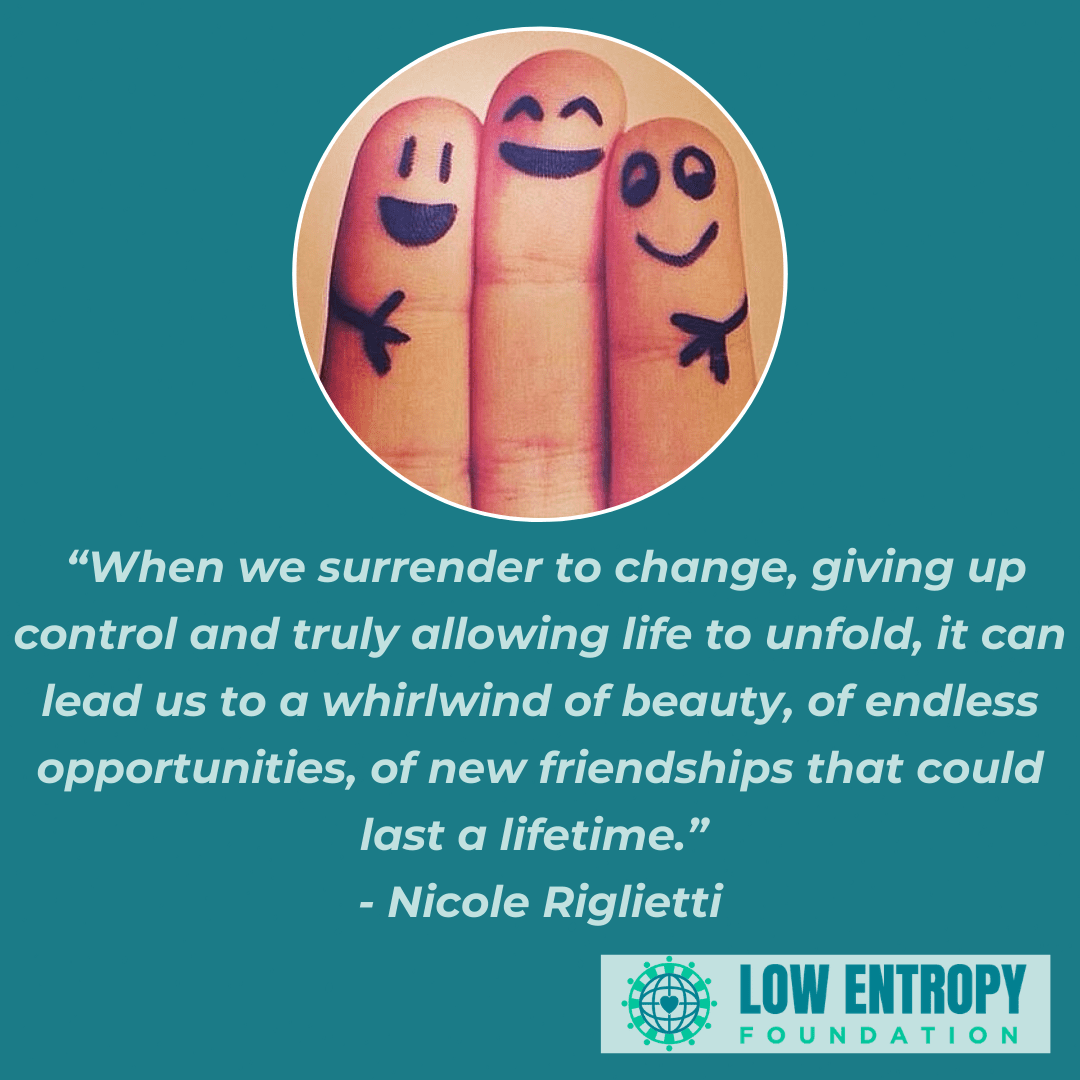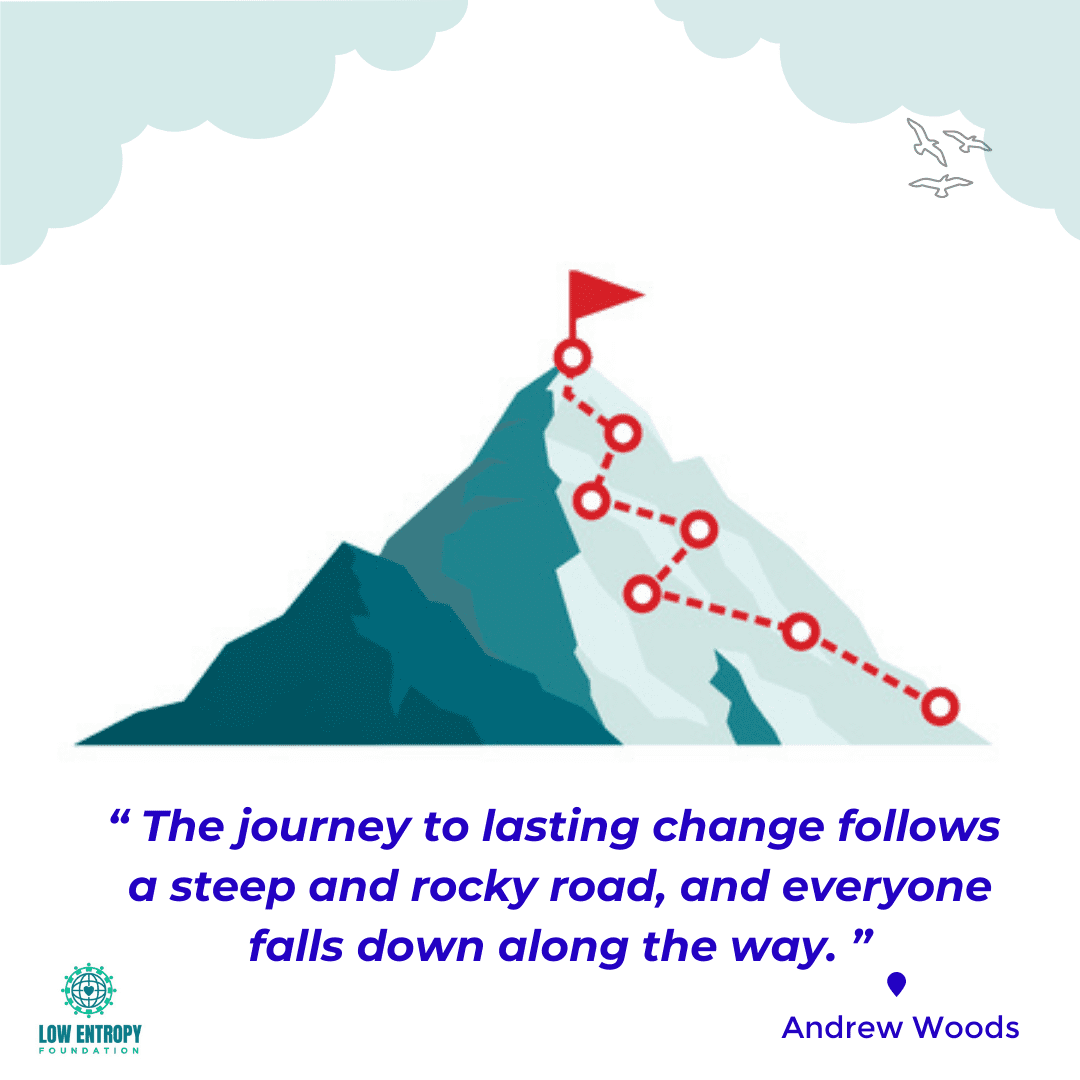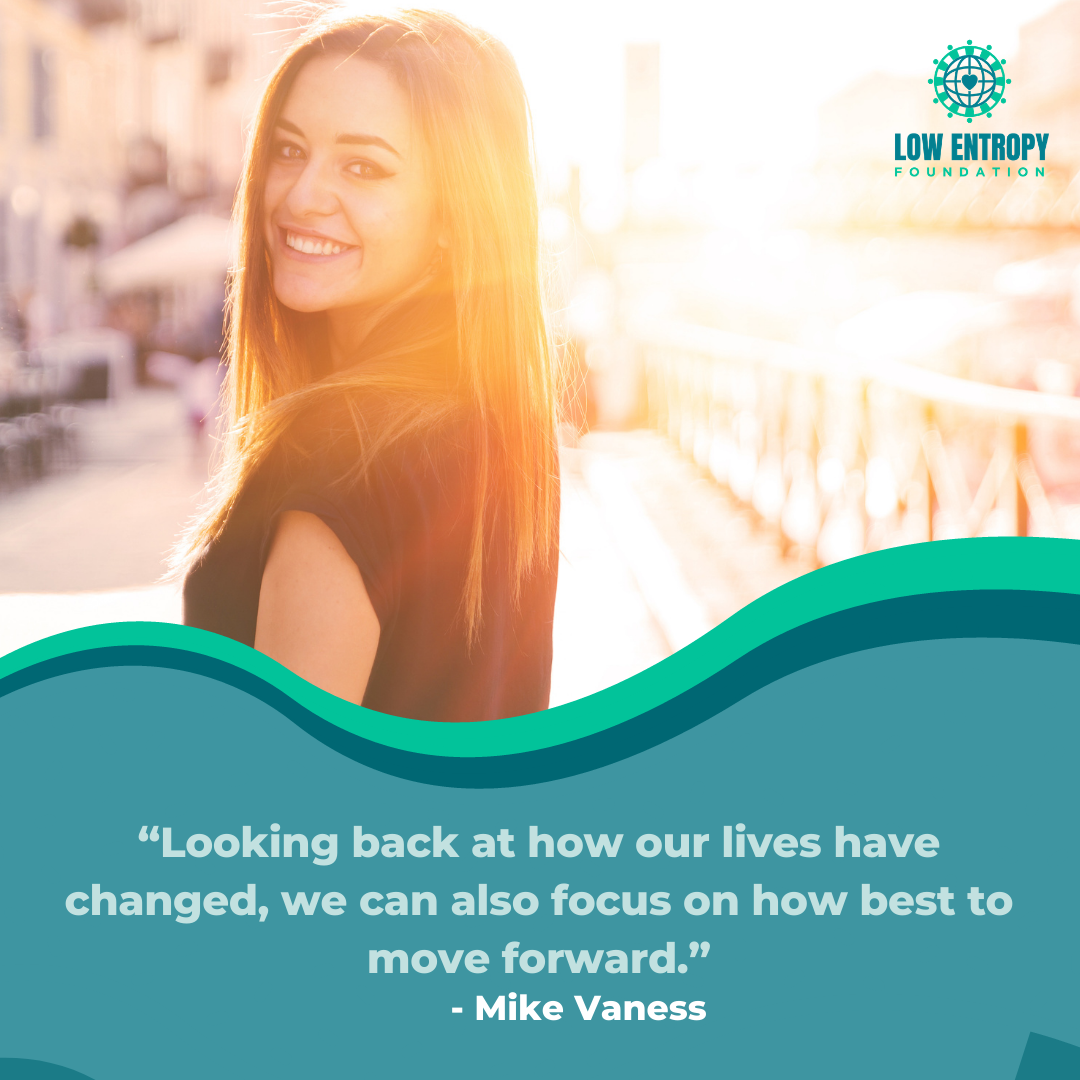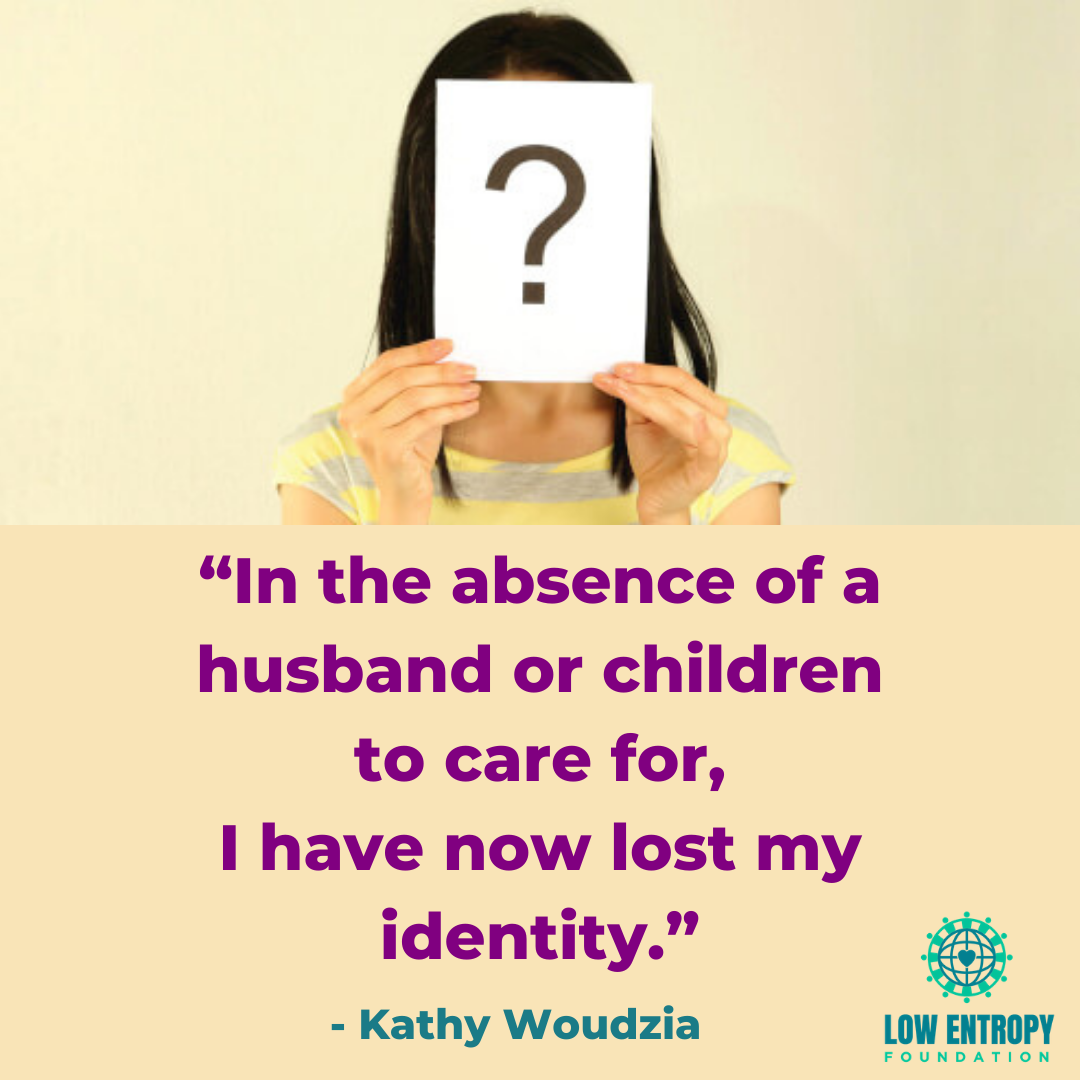Armed with an arsenal of metaphors, Low Entropy Volunteer Writer Nicole Riglietti waxes poetic on the nature of change and how essential it is to the human experience.
Change is a constant in our lives. As the moon moves through its monthly phases, so do humans; it’s inevitable. We struggle, we strive, we fail and we survive. We rely on change to help us grow, move forward and evolve.
Sometimes it hits us like a fastball, curved in the wind and aimed right at our face, in a game we didn’t even know we were playing. At times we call on change to help us catapult our lives into a new direction, onto the next adventure that we spent countless hours preparing for with steadfast focus and determination. Then there are times when we long for change. For something. Anything, to fill the gruelling void of our existence. We resist change and we fight it, we even welcome it, celebrating its arrival like an old friend we haven’t seen in years. Change can be a quick fleeting moment, a flash of insight that ignites the spark within, making it impossible to look back. It comes in many waves and forms.
As humans we are all onions, made up of layers through experience, boundaries and moral codes. And as change moves through us, it adds new layers. Its lifeforce lives within each choice we make, no matter how large and grandiose or how trivial and small. Change is a power that’s neither good nor bad, right nor wrong; it just is. And it waits for no one. Change can keep us grounded and humble, or it can shake us to our core, flipping our world upside down, leaving us floating amidst the carnage of a shipwreck, helpless, dazed and mostly confused. Then there’s change, laughing at us, leaving us breathless, gasping for air, paralyzed from the waist down, unable to move, let alone take a step forward. And, yet, we do. Because we are resilient people who rise up and carry on, finding our new paths, discovering our new sense of normalcy. And we adapt, as best as we can. It’s our reactions to events and circumstances that allow us to either keep moving on or pause, take a step back and re-evaluate.
When we surrender to change, giving up control and truly allowing life to unfold, it can lead us to a whirlwind of beauty, of endless opportunities, of new friendships that could last a lifetime. We become elated with a euphoric sense of pride, vigour and astonishment, dancing with the stars, shining our brightest and realizing that, this whole time, we were epic, fearless warriors, defeating all obstacles and defying all odds, standing tall as a tree with its roots entangled in the ground from the murky marsh it was born in. When change occurs, we must embrace our grievances, honour our wins and accept what we cannot understand.
As we adapt and evolve with time, we add another layer to the onion, with a fresh new subtle outlook on life. Until the next time, we smile and welcome change back around.
We can all agree that humans, like ogres, have layers. How has change added layers to your life? Let us know in the comments below, or share your experiences with our community in a Low Entropy group session.










